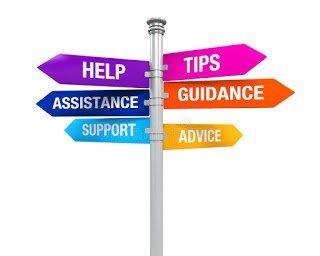The Symptoms Of Substance Misuse And Addiction
Addiction is a cunning enemy of life; it harms relationships, careers, finances, and one’s own mental and emotional well-being. One of the major hindrances to building a new way of living is denial; here, denial has innumerable faces; it prevents one from actually getting down to the causes and conditions that can bring about lasting recovery. If you have not read the page on H.O.W. you can read it here. We have compiled a list of features below that define an individual’s behavior who may need help.
Substance misuse and addiction manifest through a range of observable symptoms that can have profound effects on an individual’s physical, mental, and social well-being. Physical signs may include changes in appetite, sleep patterns, and weight, as well as the presence of withdrawal symptoms when the substance is not consumed. Behavioral changes, such as increased secrecy, declining academic or occupational performance, and neglect of personal responsibilities, often accompany substance misuse. Psychological symptoms may involve mood swings, heightened anxiety or depression, and a loss of interest in activities that were once enjoyable. Social withdrawal and strained relationships are common as individuals prioritize substance use over interpersonal connections. Recognizing these symptoms is crucial for early intervention and the initiation of effective treatment strategies to address substance misuse and prevent the progression into full-blown addiction.

How many of these substance misuses or addictions have you observed or attempted?
- The substance is used in larger amounts or for a more extended period than initially intended
- A desire to cut down on use or unsuccessful attempts to do so
- The pursuit of the substance or recovery from its use consumes a significant amount of time
- There is a craving or strong desire to use the substance
- The use of the substance continues despite the social or interpersonal problems caused.
- Use of the substance disrupts other role obligations at work, home, or school
- Participation in social, work, or recreational activities decreases or stops
- Use occurs when it is physically risky like at work, in public areas such as bars, parks, restaurants, and clubs.
- Spending money on the substance that was initially set aside for other purposes
- Continued financial problems and occurring debt as a direct or indirect result of substance abuse
- Use continues even if the individual recognizes it is causing physical or psychological problems.
- Tolerance occurs – this can be indicated by the need for increased amounts of the substance to achieve the same effect.
- Withdrawal occurs
- Getting into brawls and having encounters with law enforcement
- Repeated perilous sexual encounters with strangers or prostitutes
- Made a decision not to use a substance for a week, month, or more, but the resolution only lasted a couple of days?
- Have “blackouts” as a direct result of using a substance. A “blackout” can be defined by a sudden and temporary loss of memory and consciousness due to substance abuse
- Lying or misleading people and loved ones on where an individual has been
- Lying or misleading others about money and time spent on sprees and benders
- Continuing to use a substance while on probation from a court or at work
- Substituting substances and engaging in other interests in an attempt to stay away from the substance of choice.
Please schedule a consultation with us if more than 3 have happened in your life.
help@recovery852.com | +852 9737 7610
- Different Types of Addiction
- Support Network In Recovery From Addiction
- Effective Treatment for Addictive Behaviours
- Cognitive Behavioural Therapy For Addiction
- Setting Realistic And Reachable Wellness Goals In Recovery
- How Addiction Affects Families
- Sober Curious: A Movement For Change
- The Five Rules Of Recovery
- What Is Acceptance and Commitment Therapy?
- Mental Health 102: Understanding Depression
- Unpacking Wine Mom Culture
- The Dangers of Addiction Replacement
- Nurtured By Nature: Nature In Addiction Recovery
- The 12 Steps For Atheists
- A Deeper Look Into Dual Diagnosis
- Financial Wellness in Addiction Recovery
- How Does Stress Affect Addiction?
- Mental Health 101: Understanding Anxiety Disorders
- Talking About Marijuana Use Disorder
- Yoga Practices in Addiction Recovery












